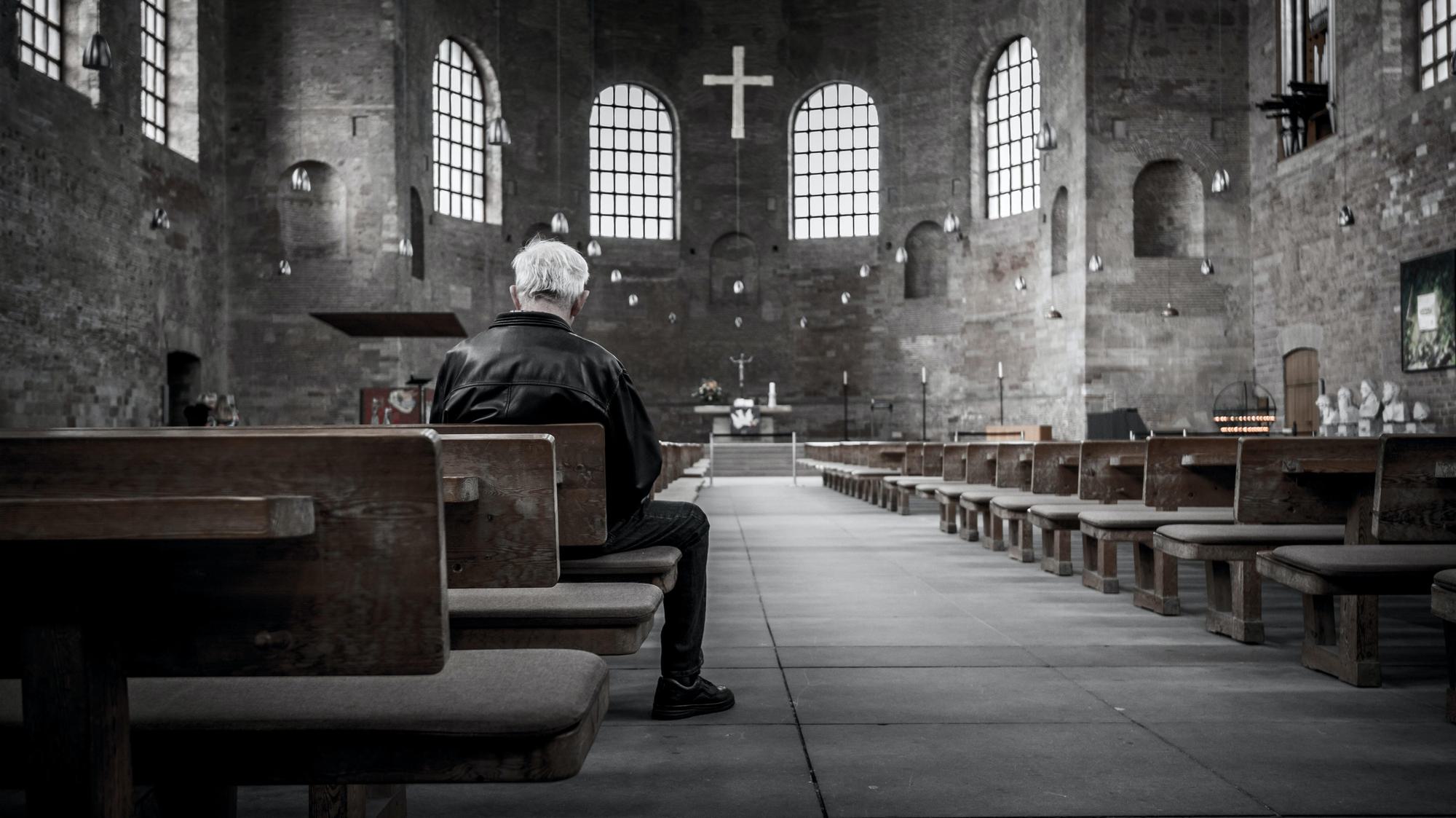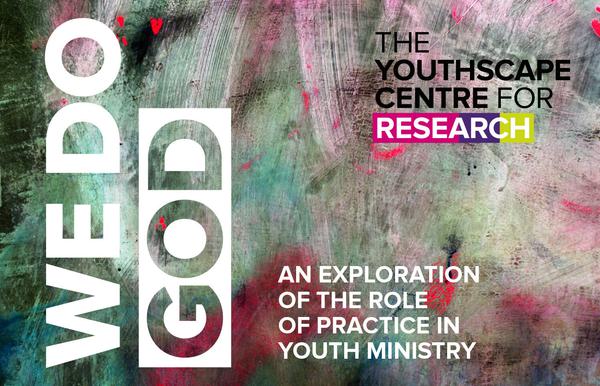We know parents can have a big influence on young people’s faith, but what about grandparents? Research suggests they have a profound – but often neglected – role to play.
‘I left my what?’
I once had a bulky package sent to my house as a young teenager. I didn’t get post very often, so I was excited. It turned out to be my own Bible (not very exciting). But there was a scrap of paper on the top in my Grandma’s handwriting and all it said was ‘You left your sword at my house’.
She was of the generation that did ‘sword drills’, a Sunday school game where children race to see who will be the first to locate a passage of scripture when it was called out. At age 13 it was half jarring and half thrilling to think of a book as a weapon. A defence against evil? A tool for attacking? What did it mean? That’s what happens when the cultures of different generations meet in a moment. Her faith was strange to me: familiar in some ways and alien in others. I was inspired by it and I reacted against it. I questioned it and asked her questions about it. Those questions helped me understand her and myself better. Her faith shaped me in all sorts of ways.
Grandparents matter
Research is increasingly challenging the segregation of children and young people within churches as a result of the creation of ‘youth ministry’ and emphasising how significant the family is for teenagers’ faith formation. In the USA, researchers from Fuller Youth Institute found that intergenerational relationships are one of four features of church life that create faith that ‘sticks’ into young adulthood, alongside a holistic understanding of the gospel, partnering with families and creating a safe space for doubt (Powell and Clark, 2011). This builds on research by Voas and Crockett (2005) who demonstrated that each age cohort is less religious than the last because of a failure in ‘religious socialisation’, in other words a failure to pass on faith. But while there have been a few studies exploring the role of parents (Mark 2016; Care for the Family). we know very little about grandparents and their experiences or perspectives of ‘faith transmission’ in a UK context.
This gap in our knowledge is significant for three reasons.
First, because the UK church is absolutely full of grandparents. In 2018, a third of the regular attendees of Church of England services were aged 70 or over (Statistics for Mission, 2018), and the number of young people in the church is declining at a rapid rate (Brierley, 2018). This reflects demographic shifts more broadly – a third of the population are grandparents, three quarters of the population will become grandparents in their lifetime and grandparents are living longer. But a number of mainstream Christian denominations are also seeing a disproportionate decline in the numbers of younger people, compared to older members of their congregations. The significance of grandparents for young people’s faith has potentially never been greater, especially in smaller churches where congregations offer fewer youth ministry activities to young people, are more likely to rate their youth work as ‘ineffective’ or have no youth work volunteers or young people at all (Losing Heart, 2016).
"Her faith was strange to me: familiar in some ways and alien in others. I was inspired by it and I reacted against it. I questioned it and asked her questions about it. Those questions helped me understand her and myself better. Her faith shaped me in all sorts of ways."
Second, grandparents do actually influence teenagers’ faith. In reviewing data about faith and family over thirty years, Bengtson et al (2009) show that grandparents can either reinforce parents’ religious influence, substitute for the parents’ influence, or subvert that influence. Indeed, sometimes the faith of grandparents “skips” a generation as grandchildren end up following in their faith footsteps despite parents’ choices to walk away from faith.
And third, grandparents and grandchildren are, arguably, closer now than they ever have been before. Outside of these extraordinary times grandparents contribute a significant amount of child-care and, thanks to 2020, many will be confident at using video-calls to stay in touch. The little research there is suggests teenagers might want that contact too. In one survey with 1566 11-16 year olds, most wanted opportunities for grandparents and grandchildren to do things together, time to build trusting relationships with them and the encouragement from parents to foster grandparent contact. While quality of contact varies for different reasons, 76% of the surveyed teenagers said grandparents advised them when they had a problem, and 85% respected what their grandparents had to say (Buchanan and Griggs, 2009).
All these trends present an opportunity to think purposefully about the role of grandparents and older people in church communities when it comes to youth ministry and discipleship.

We need to talk…
Ok, so grandparents have a role to play in supporting faith development. But how? Some research suggests that simple conversation – learning about one another’s’ lives – might be key. In one study, knowledge of family history predicted measures of adolescents’ self-worth and identity development – even after controlling for general family functioning. In other words, inter-generational conversation about the ‘ups and downs’ of family history supports teenagers’ developing sense of self. One of the authors of the study concludes that children who have the most self-confidence have a strong “intergenerational self” – they know they belong to something bigger than themselves (Fivush et al., 2010).
However, in another recent survey, more than half of the young people questioned had no idea what job their grandparent did before retirement, and 42% didn’t spend any time talking about their grandparent’s history. There is also some indication that we are talking less frequently about faith and spirituality specifically, even in church. Only 57% of the churches surveyed in Losing Heart ‘often’ talked to young people about the basics of the Christian faith.
All this suggests to me, that we should ‘talk up’ the importance of talking about life and God, particularly where grandparents have some kind of faith. A commitment to inter-generational faith formation reflects God’s own covenantal commitment to generations of people. In Psalm 78 the writer says
“I will open my mouth in parables, I will utter hidden things, things from of old – what we have heard and known, what our fathers have told us. We will not hide them from their children...”
What we see in the New Testament is that these inter-generational conversations are not one-way. In inviting children to himself, Jesus challenged a powerful assumption, still held today, that adults are inevitably wiser than children. After rebuking his disciples for preventing the children drawing near, he said
"Let the little children come to me, and do not hinder them, for the kingdom of God belongs to such as these. I tell you the truth, anyone who will not receive the kingdom of God like a little child will never enter it." (Luke 18: 16-17)
Here’s to you, grandparents.
For all their influence, my grandparents were still quite distant – in more ways than one. But my daughter is fortunate to have a Nanny and a Nana who are affectionate, and close and so interested in her. As they care for her, they embody God’s kindness and are an important part of her community of faith.
And she’s not alone. For so many young people, family has become more important than ever in the last year. The church buildings may be closed for many, but faith continues to flow in and through families, so it’s a good time to encourage and celebrate the role of grandparents in supporting teenagers.
REFERENCES:
- Bengtson et al (2009) A Longitudinal Study of the Intergenerational Transmission of Religion, University of Southern California
- Brierley, P (2018) Church Statistics
- Buchanan, P & Griggs, M (2009). My second mum and dad: The involvement of grandparents in the lives of teenage grandchildren.
- Care for the Family (2016) Faith in our families
- Mark, O (2016) Passing on Faith. Theos.
- Powell, K and Clark, C (2011) Sticky Faith: Everyday Ideas to Build Lasting Faith in Your Kids
- Statistics for Mission (2018)
- Voas, D and Crockett, A (2005) Religion in Britain: Neither Believing Nor Belonging. Sociology of Religion 39(1):11-28










